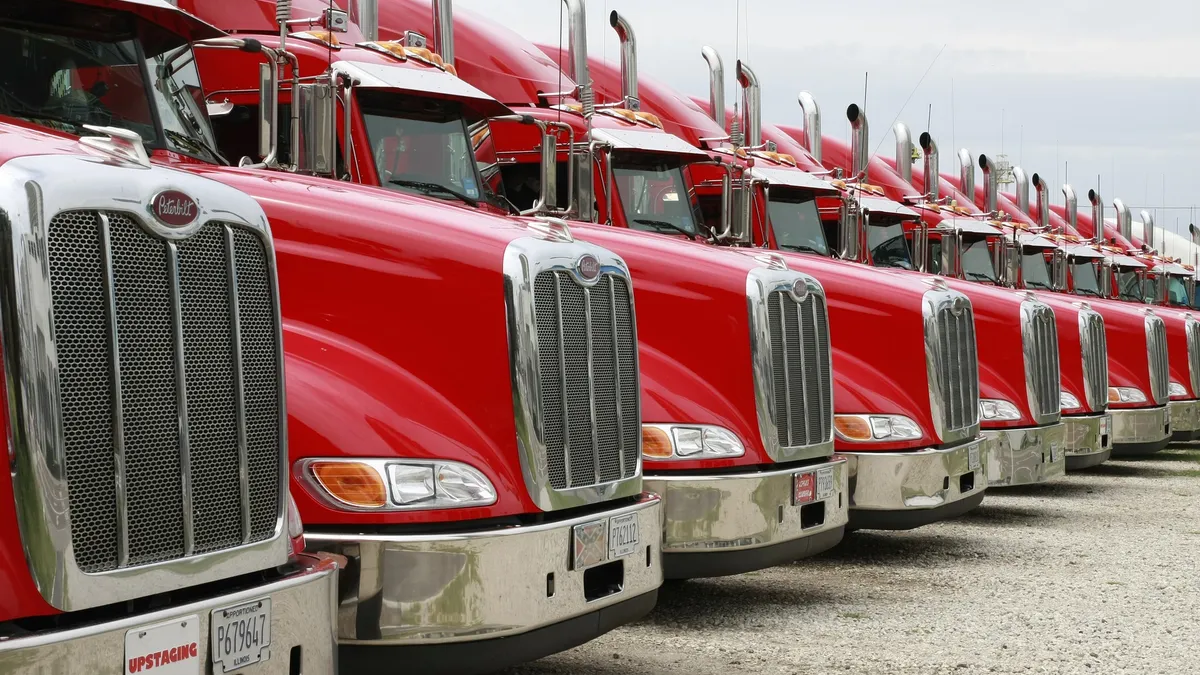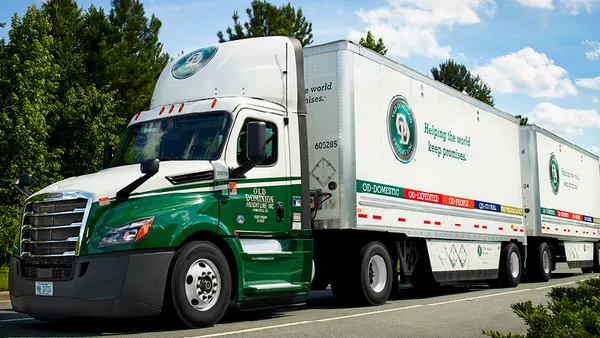Dive Brief:
- The worst of the truckload market turmoil is over, at least for Knight-Swift Transportation, CEO David Jackson said Tuesday during a UBS Global webinar. Knight-Swift's largest business segment is regular-route, one-way truckload, he said, and that segment will benefit from stores reopening.
- "We had rather light inventories before COVID-19 began," said Jackson. Pent-up consumer demand, possibly boosted by increased household savings rates, could stimulate Knight-Swift's business, Jackson said. Another factor could be produce season, and warmer temperatures, which will stimulate what Jackson calls "beverage season."
- Truck capacity has shrunk, as spot markets have pushed some truckload carriers out of the market, Jackson said. This could lead to a tighter market and higher rates, he said. And as the year goes on, the trucking sector could see "acute tightness," as more businesses reopen and demand a higher volume of carrier services.
Dive Insight:
As demand comes back online, and as seasonality causes consumer demands later in the year, there is potential for a favorable carrier advantage in Q4 of this year, Jackson said. Much capital is frozen right now and is ready to thaw, he continued, and the holiday season is not too far off, meaning freight demand will rise as it usually does, to meet shippers' seasonal goals.
There will be two types of businesses asking for truckload services as the nation reopens from the COVID-19 outbreak, Jackson said. One type is the business that didn't need to shut down too much during the widespread closures in the United States. The other type is the business that closed almost entirely.
Both business types will have to deal with a truckload sector that experienced significant changes as a result of the pandemic. Businesses that stayed open are accustomed to "many carriers" asking for loads. Businesses that are reopening are coming back online, and want to restart relationships. For either type of business, the market has now tightened, and fewer carriers will mean a scramble to find trucks for goods.
And that could mean higher rates on the contract and spot market. Spot rates are posting significant increases, according to DAT. For the week ending May 31, spot load posts went up 9.6% from the week earlier, while spot truck posts dropped 15.7%.
"The market is going to decide," said Jackson. "If we have acute tightness, that is when, all of a sudden, we see spot rates pick up, we see contract rates go up. Because now it is about securing capacity consistently to get us through that."
The gap between spot rates and contract rates are beginning to shrink, after spot rates hit an unnatural low, he said. The shrinking gap will cause shippers to prioritize the arrival of their goods.
Knight-Swift is the nation's largest truckload carrier. The company reported revenue in Q1 dropped 6.6% to $1.12 billion. The pandemic outbreak's first weeks saw the company's business mix change. Essential goods were 61% of Knight-Swift's customer mix before the pandemic, but that share jumped to 72% by early April, company officials said in an April 22 earnings release for Q1.














